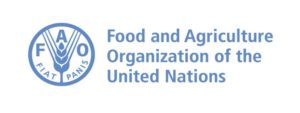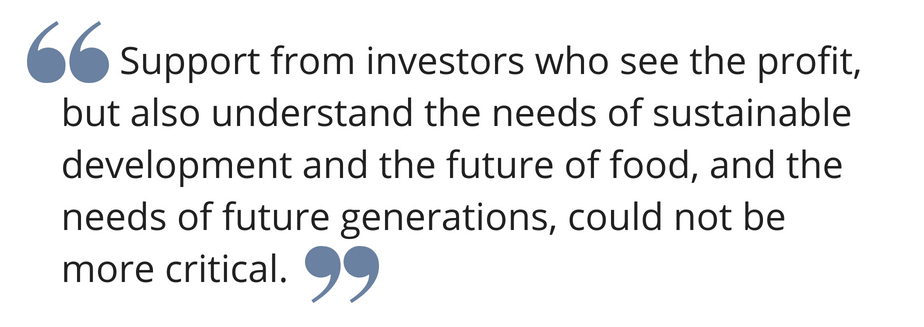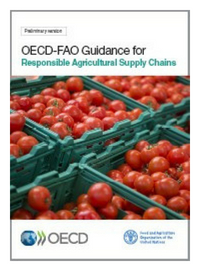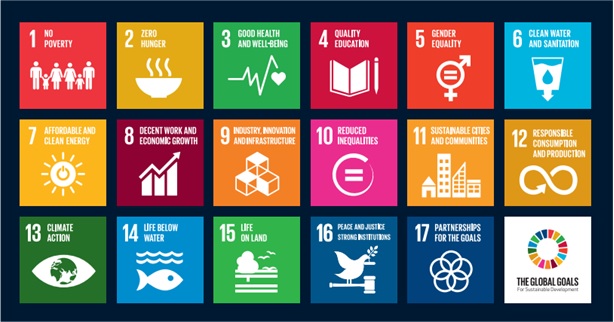May Insight – Investing in agriculture, investing in development
 For this issue of Eurosif Insight, we spoke to Tomislav Ivančić from the Food and Agriculture Organization (FAO) of the UN to learn about the role investors can play in the agricultural supply chain and how they can make the right choice for sustainability. At FAO, Tomislav works as a Senior Consultant in Decent Rural Employment. Previously, he has been working with international organisations and the private sector in social and environmental risks in supply chains, decent work, and value chain creation in developing contexts.
For this issue of Eurosif Insight, we spoke to Tomislav Ivančić from the Food and Agriculture Organization (FAO) of the UN to learn about the role investors can play in the agricultural supply chain and how they can make the right choice for sustainability. At FAO, Tomislav works as a Senior Consultant in Decent Rural Employment. Previously, he has been working with international organisations and the private sector in social and environmental risks in supply chains, decent work, and value chain creation in developing contexts.
Eurosif: From your viewpoint, do you see Institutional Investors as a positive ally in the agricultural supply chain or more of a threat? How can the situation be improved?
 Tomislav Ivančić: It would be difficult to imagine sustainable development and agriculture without the active participation of institutional investors. Increasingly, governments, international organisations, and other development actors are turning towards the investor community for cooperation in supporting socio-economic progress in the developing world. This progress has been facilitated by the advent of initiatives such as the UN Guiding Principles on Business and Human Rights (UNGPs), the 2030 Agenda for Sustainable Development and its 17 Sustainable Development Goals (SDGs), have generated much attention on how enterprises may affect – and can contribute towards – communities where they operate. Further, the growth of socially responsible investing (SRI), impact investing, and establishing greater efforts to screen risk through environmental, social and governance (ESG) tools has provided a much-needed link between institutional investors and the development agenda. Equally so, institutional investors themselves are under significant pressure to demonstrate that they are managing funds in a manner that does not harm people or the planet.
Tomislav Ivančić: It would be difficult to imagine sustainable development and agriculture without the active participation of institutional investors. Increasingly, governments, international organisations, and other development actors are turning towards the investor community for cooperation in supporting socio-economic progress in the developing world. This progress has been facilitated by the advent of initiatives such as the UN Guiding Principles on Business and Human Rights (UNGPs), the 2030 Agenda for Sustainable Development and its 17 Sustainable Development Goals (SDGs), have generated much attention on how enterprises may affect – and can contribute towards – communities where they operate. Further, the growth of socially responsible investing (SRI), impact investing, and establishing greater efforts to screen risk through environmental, social and governance (ESG) tools has provided a much-needed link between institutional investors and the development agenda. Equally so, institutional investors themselves are under significant pressure to demonstrate that they are managing funds in a manner that does not harm people or the planet.
As investors seek to diversify their portfolios, the agricultural sector is becoming attractive for profit – and markedly important for growth in the developing world. In sub-Saharan Africa alone, the sector accounts for 30 to 40 percent of gross domestic product in most countries and recent estimates forecast that that by 2030 agribusiness will grow to be a US$1 trillion industry in Africa. Despite challenges such as unemployment rates peaking at 50 percent and largely affecting youth, targeting agricultural investments in the developing world can result in strong returns, but also kick-start economic development and employment generation in rural areas – where most farming takes place. Moreover, institutional investors may not always consider spillover development in agriculture, namely the positive impacts that capital can have on stimulating growth in the larger food value chain (marketing, packaging, etc).

Eurosif: The OECD-FAO Guidance for Responsible Agricultural Supply Chains represents another invaluable piece of guidance developed by two organisations which join forces to lead the private sector in a sustainable journey. As the report’s structure draws from the OECD Due Diligence Guidance for Responsible Supply Chains of Minerals from Conflict-Affected and High-Risk Areas, how ‘hands-on’ is it and how was it welcomed in the private sector community?
TI: A rising population growth, growing demand for food, and increased food consumption by an emerging middle class in developing countries make agriculture an attractive investment. Yet, opportunity can come with risk for both companies, and the communities in which they operate. More than ever, the private sector is embracing guidance on how to mitigate non-financial risk, and seek advice on how they can re-tailor business models to address the challenges of sustainable development.
Recognizing that investment in agriculture is greatly needed, yet equally challenging when considering potential impacts on society and the environment, the Food and Agriculture Organization (FAO) of the United Nations, in partnership with the Organisation for Economic Co-operation and Development, issued the OECD-FAO Guidance for Responsible Agricultural Supply Chains. The guidance aims to help the private sector implement existing standards by providing recommendations on the steps that they should undertake to identify and address risks of adverse impacts that stem from their activities. Companies have welcomed the guidance, as it provides practical solutions on how to exercise due diligence systems that tackle challenges in agriculture, including land tenure, contract farming, environmental impacts, among other areas.

In order to truly gain traction in development, institutional investors are increasingly aware of the leverage that they hold on socio-economic progress through the entire investment chain, extending far beyond the immediate investee company. For institutional investors, promoting such guidance is fundamental as it helps direct the type of questions they should be asking when diversifying their portfolio to agriculture, and prompting for positive change. When considering agricultural supply chains, investors should seek evidence of thoughtful due diligence, which goes far beyond a tick-box exercise. This also includes active engagement of investee companies applying due diligence past the first and second tiers down the supply chain.
For institutional investors, it is evident that in order for agribusiness to become an attractive option for large funds, there needs to be a clear strategy to turn farmland businesses into active pursuits. Such strategies should already address potential social or environmental impacts and proactive ways which they can be mitigated and turned into development opportunities. The FAO-OECD guidance provides investors with a practical tool that helps probe risk, and provide a starting point for ensuring that profit and business conduct can complement and support progress in the 2030 development agenda.
In 2014, the foremost international multi-stakeholder platform on food security and nutrition which reports to the UN General Assembly - the Committee on Food Security (CFS) - set out the CFS Principles for Responsible Investment in Agriculture and Food Systems (RAI). The set of ten principles apply to agricultural investments (including fisheries, forests and livestock) of all size and all stages of the value chain. The RAI Principles are particularly useful for institutional investors when assessing new opportunities in agriculture, and probing for the degree to which matters such as land tenure, food security, gender, youth, and decent employment, among other areas, are taken into consideration.
Eurosif: Apart from clean water, access to adequate food is the primary concern for most people on earth. This makes agriculture one of the largest and most significant industries in the world. Agriculture will play a crucial role in addressing the planet’s future needs – whether on food production, health, or the preservation of the environment. SDGs are a clear opportunity for investors to contribute to positive change here. How can they make the right choice and who can they turn to for advice?
TI: Globalisation has brought about greater connectivity, trade, and access markets, all of which have had strong impacts on food value – and supply chains. While the industrialization of agriculture has created many opportunities to increase food production at lower costs, it has also brought about concerns regarding social and environmental impacts, particularly those governing working conditions and the effects of climate change on agriculture. Investing in companies that focus on enabling poor and marginalized groups to generate income, build assets, protect against shocks, and sustain livelihood is key to achieving the SDGs. Among the goals, investors often consider SDG Goal 8 (decent work and economic growth) as the most relevant since it contends with the conditions and treatment of workers, alongside other areas such as child labour – areas of direct relevance to the core business of a company, but with high impacts on the communities in which they operate.
Sustainable Development Goals (SDGs)

For investors, responsibility, impact and development can take several shapes. With the global population expected to reach more than nine billion by 2050, FAO estimates that agricultural production will need to grow by 70 percent to keep the world’s population fed and healthy, which brings about the question of food security. Only about 10 percent of this growth will come from the availability of new land, which means that 90 percent will need to come from intensification of current production. Ensuring that this intensification is sustainable will require enormous investments for primary agriculture, including storage and processing infrastructure – just to stay abreast of the population growth. Institutional investors can play a huge role in filling these gaps, coincidentally also strategic investment opportunities, to help reduce the threat of food insecurity.
Equally so, there would not be a future of agriculture without a next generation of farmers, specialists in logistics, cold storage, among numerous other occupations in value chains associated with agricultural production. Globally, there are 71 million unemployed youth worldwide and 156 million young workers living in poverty. Although the world’s youth population is expected to grow, employment and entrepreneurial opportunities for young women and men remain limited – particularly for those living in economically stagnant rural areas of developing countries. The majority of rural youth are employed in the informal economy as contributing family workers, subsistence farmers, home-based micro-entrepreneurs or unskilled workers. They typically earn low wages, are employed under casual or seasonal work arrangements and face unsafe, often exploitive working conditions that compel many to migrate to urban areas, or further afar. Re-engaging youth in agriculture requires addressing the numerous constraints that they face when trying to earn a livelihood.
Support from investors who see the profit, but also understand the needs of sustainable development and the future of food, and the needs of future generations, could not be more critical. Between 2015 and 2030, the combined population of Africa and Asia is projected to increase from 5.6 billion to more than 6.6 billion. In the same period, the number of people aged 15–24 years is expected to grow by about 100 million to 1.3 billion worldwide. Addressing these challenges, FAO has developed a programme on Decent Rural Employment, tailored to the challenges faced in decent work and youth employment within the context of agriculture and the rural economy. Together with governments, civil society organisations, businesses and other stakeholders, FAO builds capacity on how to tackle decent employment in rural areas, and boost the employment of youth, through tools such as the Junior Farm Field and Life Schools (JFFLS) approach, which helps build critical skills for youth to enter into the agricultural labour market.
While efforts are being made, mobilising support from the investor community is needed to tackle productivity, poverty, and development in agriculture. Indeed, investors have not traditionally made decisions based on how to bolster development, however, times are changing. When considering multinationals, several are taking the lead in beginning to re-think business models, akin to concepts such as Creating Shared Value (CSV) by Dr Michael Porter of Harvard Business School, which argues that the competitiveness of a company and the health of the communities around it are mutually dependent. This same notion could not be truer for rural labour markets, and the need for boosting decent jobs for youth through greater agricultural investment in the developing world.
